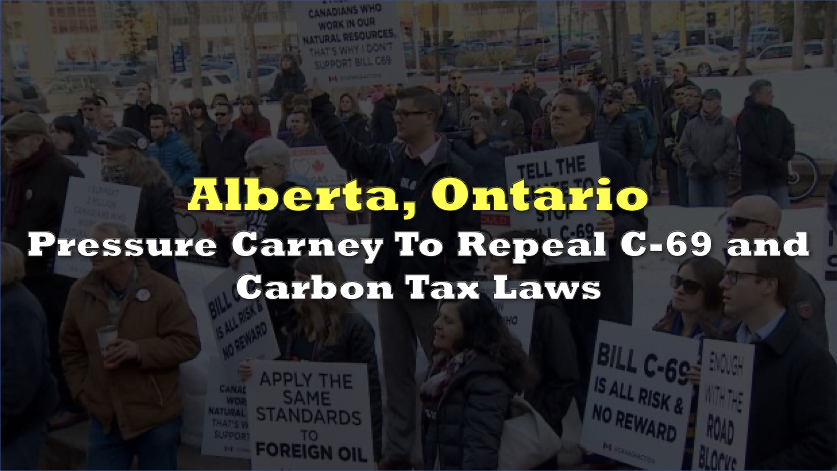A study from Dalhousie University and Canadian research institutions finds that while Canada’s carbon pricing policy has driven down greenhouse gas emissions, it has also raised food costs, disproportionately impacting low-income households.
The study, titled “Implications of Carbon Pricing on Food Affordability and the Agri-Food Sector in Canada: A Scoping Review,” details the dual pressures carbon taxes place on food producers and consumers, emphasizing the need for targeted policy adjustments to balance climate goals with food affordability.
Carbon pricing, initiated federally in 2018 at a rate of $10 per tonne of CO₂ emissions, has increased to $80 per tonne as of 2024 and is slated for further increases of $15 a year until 2030, at which point it will reach $170 a tonne. While this tax aims to reduce GHG emissions from high-polluting sectors, researchers highlight a cascading effect on food costs due to the increased prices of agricultural inputs like fuel, fertilizers, and transportation.
“Carbon pricing impacts not only food prices but also broader economic dynamics,” the study’s lead author Sylvain Charlebois (aka The Food Professor) explains, underscoring that its influence is most strongly felt in rural and lower-income households dependent on food systems driven by energy-intensive practices.
Excited to share our latest peer-reviewed paper, "Implications of Carbon Pricing on Food Affordability and the Agri-Food Sector in Canada: A Scoping Review," co-authored by 11 scholars, this study dives into the complex relationship between carbon taxes and food affordability,… pic.twitter.com/KNPxGV66Qc
— The Food Professor (@FoodProfessor) November 12, 2024
Cost Burdens
The paper reveals that carbon taxes raise operational costs across Canada’s agri-food sector, affecting both direct and indirect expenses for food production. These include increases in energy costs to power farm equipment and higher prices for fertilizers and pesticides, which, in turn, drive up the price of goods like meat, dairy, and vegetables.
A 2023 study estimated that Canada’s carbon pricing could raise consumer food prices by up to 1% across various sectors, with particular pressure on meat and dairy products due to their higher energy needs and carbon footprint.
“With food prices rising in tandem with carbon taxes, low-income families are particularly vulnerable,” the study states, pointing out that these households already spend a larger share of their income on essentials. The authors argue that without appropriate policy safeguards, these price increases could exacerbate food insecurity across the country.
The review also emphasizes the uneven impact of carbon pricing across Canadian regions, noting that rural provinces where agriculture is a primary industry, such as Alberta and Saskatchewan, feel a heavier economic strain.
“In Canada, food affordability is closely tied to regional economic conditions and energy policies,” Charlebois adds, suggesting that Canada should consider region-specific adaptations to the carbon pricing policy to lessen its impact on both farmers and consumers.
The livestock sector is particularly vulnerable, as beef and dairy have higher energy and water demands compared to crop-based foods. This results in higher production costs for livestock products, which are passed on to consumers. Wu and Thomassin’s economic model, cited in the paper, projects that exempting agriculture from carbon taxes could mitigate these inflationary effects, potentially easing the burden on consumer prices while preserving emission reduction goals.
Mitigating Measures
The study’s authors call for increased government attention to policies that alleviate the financial burden of carbon pricing on low-income Canadians.
“Our findings suggest that rebates or subsidies targeted to these vulnerable households could prevent carbon pricing from disproportionately impacting food affordability,” the authors note, advocating for a balanced approach to carbon pricing that takes economic equity into account.
By promoting more sustainable farming practices and investing in low-carbon agricultural technology, the authors argue, Canada could offset some of the production costs that carbon taxes impose on the food sector. This approach, they suggest, would help Canada continue to meet its climate targets under the Paris Agreement while protecting food security for all Canadians.
The review also identifies critical gaps in current research on the impacts of carbon pricing in the agri-food sector. Most studies focus on energy and transportation costs, leaving gaps in understanding how carbon pricing affects different types of food production in Canada.
Moreover, existing models struggle to account for the indirect effects of carbon pricing on different regions within Canada, where cost and income disparities are significant. To address these gaps, the review suggests future research focus on:
- Customized models for different Canadian regions could better reflect the varied impacts of carbon pricing across the nation.
- Understanding how carbon pricing affects food production differently by sector, particularly livestock versus crop production, could aid in developing more targeted policies.
- Studies on rebate programs and subsidies designed to alleviate the financial burden on low-income households would provide valuable insights into the effectiveness of these measures.
“Carbon pricing is an essential tool in the fight against climate change, but without tailored strategies to protect affordability, it risks creating unintended burdens for those least able to bear them,” the study concludes.
The Canadian experience mirrors similar outcomes seen in other Western economies, although regional policies vary widely. The review discusses models from Sweden and the European Union, where cap-and-trade and carbon tax systems have shown success in reducing emissions.
However, these models also reveal modest inflationary impacts on food prices. For instance, the European Central Bank has estimated that a 10 EUR per tonne carbon price increase could raise food inflation by 0.1 percentage points, a small but notable effect on consumer prices.
In contrast, developing countries and other economically vulnerable regions may experience greater challenges with carbon pricing due to existing high poverty rates and reliance on imported goods, including food. Thus, the review recommends that Canada consider these global examples to tailor its policies for greater effectiveness and fairness.
Information for this story was found via the sources mentioned. The author has no securities or affiliations related to the organizations discussed. Not a recommendation to buy or sell. Always do additional research and consult a professional before purchasing a security. The author holds no licenses.









